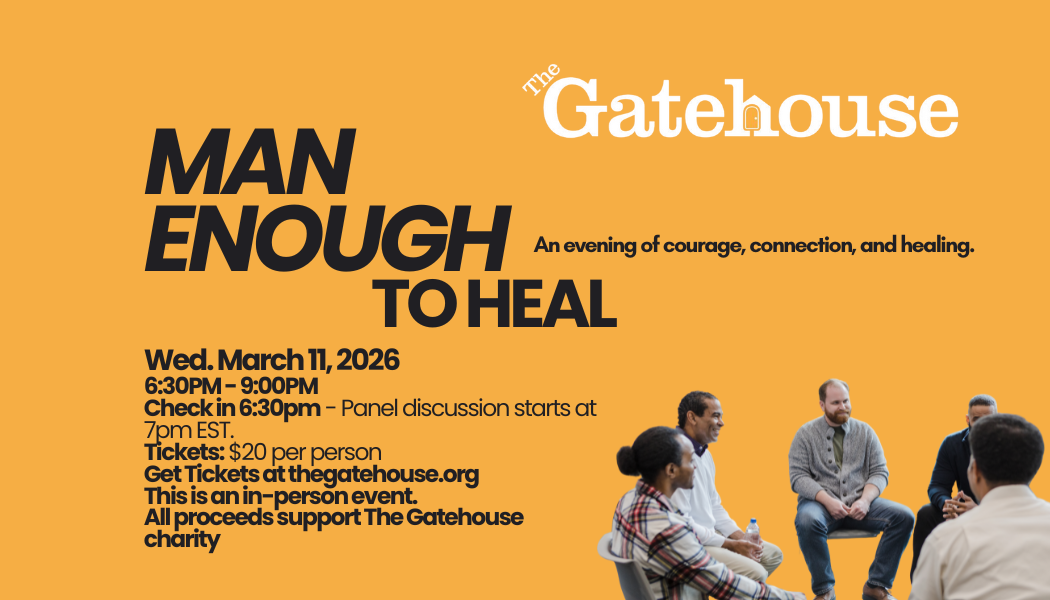Grounding, Dissociation, and Remaining Present
By Jamie Ayotte, The Gatehouse Placement Student – Social Service Worker Program
Survivors of childhood sexual abuse experience many unfortunate side effects as a result of their trauma. No one story is identical, but a lot of the similar issues experienced by different survivors are common. One of these that I have been thinking a lot about recently is called dissociation, as it has crept its way back into my life in the past month (for context, I am also a survivor). Dissociation is defined as “a disruption in the usually integral functions of consciousness, memory, identity, and perception of the environment” the definition goes on “Dissociative symptoms exist along a continuum, ranging from common experiences such as daydreaming and lapses in attention, through deja vu phenomenon, to a pathological failure to integrate thoughts, feeling, and actions.”. My own experience with dissociation has varied over the years, from the common daydreaming to completely losing track of where I am, what I’m doing and even have gone as far as completely blacking out in times of major stress. Luckily over the years, I’ve been able to manage the effects using various tools I’ve learned, but upon re-entering the online learning world this month, I’ve found myself faced with the challenges of dissociation while I’m speaking in front of my peers and classmates once again.
Through years of therapy and techniques, I learned from the volunteers at The Gatehouse, I now have an arsenal of grounding tools that I can reach for (mentally and physically) when I start to feel myself drifting away. For anyone who isn’t familiar, grounding is basically a self-soothing skill that can be used to keep a person in or bring them back to the present when they are experiencing feelings of overwhelm, intense anxiety, dissociation or any other uncomfortable effects of being triggered. It helps you reorient the here and now. For me, grabbing a paperback book and feeling the pages between my fingers can help, or paying particular attention to objects or colors in a room that reminds me of the earth (earth tones, textures, etc…), but there are many different types of grounding techniques that can help different people.
Here is a list of some grounding techniques I find helpful:
- Touching/holding an object that brings you comfort and/or makes you feel safe. As I mentioned above, holding onto a book and feeling the pages is an example. For me, I’m reminded that the pages are made of paper, which is made from trees. In some strange way this makes me feel connected to the earth, and can bring me back to the present.
- Focus on items or colors around you that are earth tones or textures (browns, greens, coarse). Again, I find these types of things remind me that I am connected to the earth, and not wherever it is that my brain seems to want to take me. If these colors do nothing for you, think about which ones do make you feel good and surround yourself with those.
- Going barefoot/feeling the grass under your feet. The act of literally feeling the earth underneath you can be incredibly grounding and soothing. Nature in general can have similar effects whether it be flowers, or touching the bark of a tree.
These techniques that work for me are all sensory-based, and here are some more:
- Running cool or warm water over your hands (not too hot!)
- Spritzing your face, neck, and arms with a fine water mist
- Placing a cool washcloth on your face, or holding onto something cool like a can of pop
- Listening to soothing or familiar music, dancing to it if you can
- Noticing the weight of your body in your chair or on the floor, feeling the weight of your clothes on your skin.
There are other types of techniques as well, such as:
Mental Distraction Techniques:
- Pick a letter and think of emotionally positive or neutral words that begin with that letter
- Pick a color and look around for objects of that color, notice the differences in their exact shades
- Describe an everyday event/process in great detail, listing each step in order as thoroughly as possible
- Watch a children’s movie or television show, or something cute/funny on YouTube
- Think of the words to your favorite song or poem
There are many different types of techniques that you can try using if you are experiencing something that you think grounding could help you with! For me, sensory works best but I know folks who use multiple types. Check out the link below if you’re interested in a lengthier list of different techniques and their types!
https://did-research.org/treatment/grounding
References:
Grounding techniques. DID. (n.d.). Retrieved September 27, 2022, from https://did-research.org/treatment/grounding
Relationship between dissociation, childhood sexual abuse, childhood … (n.d.). Retrieved September 27, 2022, from https://ajp.psychiatryonline.org/doi/pdf/10.1176/ajp.155.6.806

